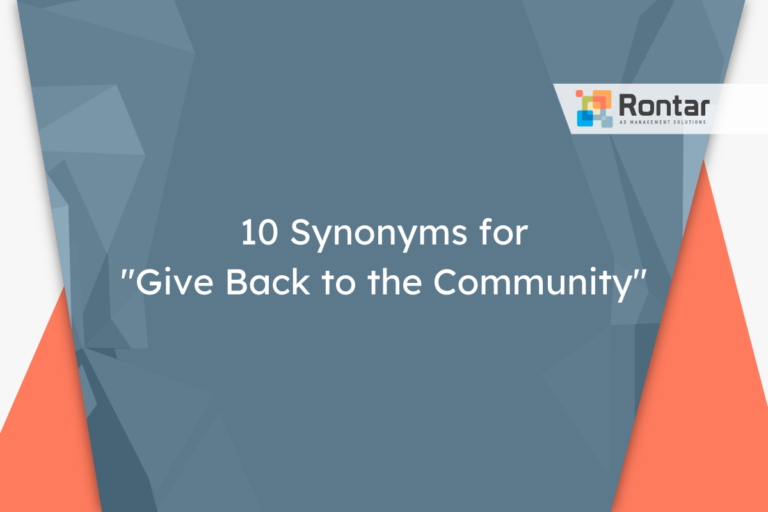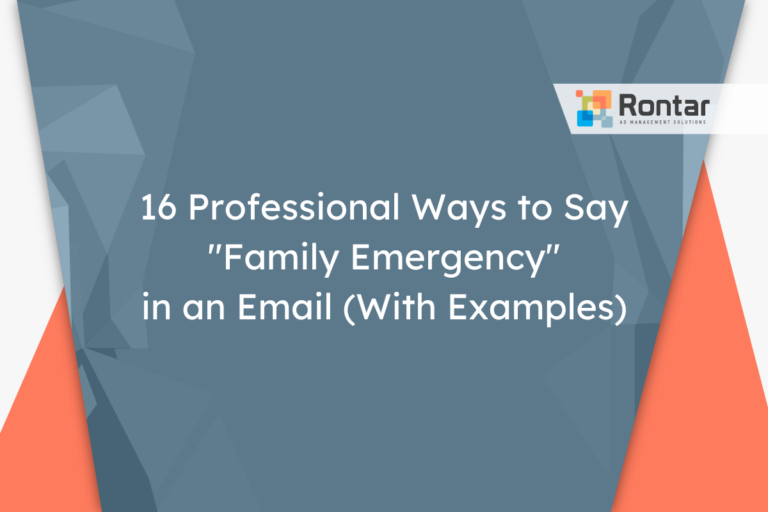10 Other Ways to Say “Please Let Me Know Your Availability”

Finding the right words to ask for someone’s availability can be challenging, especially in a professional setting. You want to be polite but also clear and direct.
This article provides ten alternatives to the common phrase “please let me know your availability” for use in workplace emails. Each alternative is broken down to show when and how it might be better suited to different professional scenarios.
Is It Professional to Say “Please Let Me Know Your Availability”?
Asking someone to “please let me know your availability” is considered professional, formal or semi-formal, and polite. This phrase effectively communicates your need for scheduling a meeting or appointment without assuming the other person’s schedule is open or flexible. It shows respect for their time and commitments, which is crucial in professional settings.
This phrase is appropriate to use with different types of recipients such as colleagues, clients, or any professional contacts. It fits well in emails, professional messaging platforms, and could also be used in more formal texts or letters.
Here’s an example:
Greetings Emily,
I hope this message finds you well. We need to discuss the upcoming marketing strategies and I believe your input would be invaluable. Could you please let me know your availability for a meeting next week?
Thank you,
Michael
Let’s consider the pros and cons of using this phrase.
Pros:
- Shows respect for the other person’s time.
- Clear and polite, ensuring the message is well-received.
- Keeps the conversation open and flexible.
Cons:
- May be too formal in a casual or very familiar setting.
- Can seem vague without specifying a preference or suggesting dates.
There might be situations where someone would want to use an alternative phrase. For example, if the context calls for a more casual tone or if they wish to propose specific dates right away, synonyms or alternatives might come in handy to adjust the level of formality or directness.
10 Other Ways to Say “Please Let Me Know Your Availability”
If you’re looking for different ways to ask someone when they’re free without repeating the same phrase, here are ten common alternatives suitable for a professional setting:
- Could you share your available times?
- When are you free to meet?
- What does your schedule look like next week?
- Can you suggest convenient times for a meeting?
- Are there good times for you next week?
- When do you have openings this week?
- Could you provide times when you’re available?
- What’s a good time for you?
- I’d love to find a time that works for both of us. When might that be?
- Can we find a suitable time to reconnect?
This alternative is slightly more direct than the original phrase but maintains a professional and polite tone. It asks for specific information, making it clear what you need without being overly formal.
This option works well in emails or messages where you are familiar with the recipient but still want to keep the conversation professional. It’s great for arranging meetings with colleagues or clients you’ve interacted with before.
Example:
Dear Alex,
I’m looking forward to our discussion on the project. Could you share your available times for a call next week?
Best regards,
Samantha
2. When are you free to meet?
This phrase is more casual while still appropriate for a professional context. It’s an easy way to ask about availability without sounding too formal, making the conversation feel more personal and friendly.
It’s best used with colleagues or clients with whom you have a somewhat informal relationship. This alternative is suitable for use in less formal emails or messages, particularly in less rigid corporate environments.
Example:
Hi Brian,
Hope you’re doing well. When are you free to meet to go over the quarterly reports?
Cheers,
Olivia
3. What does your schedule look like next week?
This alternative is a great way to sound professional yet relaxed. It invites the recipient to share their availability freely, without imposing any specific dates or times upfront.
Suitable for professional settings where you wish to maintain a friendly rapport. It works well in emails or digital messages to coworkers, supervisors, or clients when planning ahead for meetings or calls.
Example:
Hello Derek,
We need to review the project timeline. What does your schedule look like next week?
Kind regards,
Nina
4. Can you suggest convenient times for a meeting?
This alternative is polite and considerate, emphasizing convenience for the recipient. It’s a straightforward way to communicate that you’re flexible and willing to work around their schedule.
This phrase is ideal for professional interactions where you want to show respect for the other person’s time, especially with senior colleagues or potential clients. It’s most fitting for email communications.
Example:
Dear Martin,
In light of our upcoming project, can you suggest convenient times for a meeting? I’m eager to hear your thoughts.
Warm regards,
Elena
5. Are there good times for you next week?
This alternative conveys flexibility and a willingness to accommodate the recipient’s schedule. It’s professional, yet its tone is light and accommodating, making it perfect for a variety of situations.
Great for use in emails with colleagues or clients where the relationship is friendly and cooperative. This wording fits well in scenarios where flexibility is key to setting a meeting or call.
Example:
Hello Jamie,
I’d like to catch up on the current project status. Are there good times for you next week?
Best,
Tara
6. When do you have openings this week?
This option is professional and to the point. It’s helpful when looking to have a more immediate meeting or discussion, prioritizing the current week.
Useful for prompt meetings or discussions with team members, managers, or clients who prefer straight-to-the-point communications. This is particularly effective in fast-paced work environments and can be used in emails or digital messages.
Example:
Dear Casey,
We need to finalize the budget details. When do you have openings this week?
Regards,
Luke
7. Could you provide times when you’re available?
This synonym offers a polite and professional way to ask for availability. It’s slightly more formal, indicating that you’re waiting for the recipient to lead the way in setting a meeting time.
This alternative is suitable when dealing with higher-ups or clients, showing deference to their schedule. It fits well in professional email exchanges where formality is appreciated.
Example:
Dear Ms. Wong,
To proceed with the project proposal, could you provide times when you’re available? I value your input greatly.
Sincerely,
Robert
8. What’s a good time for you?
This option is straightforward and leans towards the informal side while still being professional. It’s a versatile phrase that can be used in various contexts to schedule a meeting or call.
It’s particularly effective for communicating with colleagues or clients in a more relaxed manner. This phrase is best for emails and messages in environments that value brevity and clarity without excessive formality.
Example:
Hey Zoe,
Quick question - what’s a good time for you for a brief chat about the Kent project?
Thanks,
Adrian
9. I’d love to find a time that works for both of us. When might that be?
This phrase suggests a high level of politeness and consideration, emphasizing collaboration in finding a mutually convenient meeting time. It’s more informal, creating a friendly and cooperative tone.
Ideal for correspondences with peers or close collaborators, fostering a team-oriented mindset. This alternative works well in emails or digital messages where you want to convey flexibility and eagerness to accommodate.
Example:
Dear Paula,
Regarding our next project phase, I’d love to find a time that works for both of us. When might that be?
Best wishes,
Greg
10. Can we find a suitable time to reconnect?
This closing alternative focuses on the desire to reconnect, suggesting a forward-looking approach. It’s professional but also implies a certain level of existing rapport or a desire to establish one.
This phrase is apt for follow-up meetings, especially with clients or colleagues you’ve had successful interactions with before. It’s well-suited for emails aiming to set the tone for a productive future discussion.
Example:
Hello Keith,
Following up on our last conversation, can we find a suitable time to reconnect?
All the best,
Sara
Final Thoughts
Choosing the right way to ask about availability can make a big difference in professional communication. The ten alternatives provided here offer flexibility, allowing you to match your message with the tone and formality of your workplace relationships. Whether you’re reaching out to a long-time colleague or a new client, there’s an option that can work for you.






